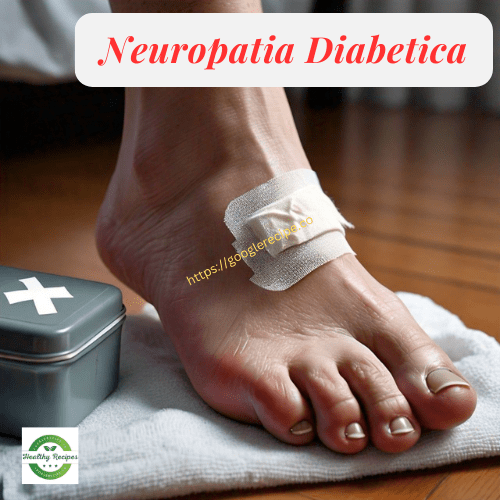what is a balanced diet?
Creating a Balanced Diet: Expert Advice for Maximum Well-Being and Health
What is a balanced diet? We’re going to talk about what a balanced diet is and why it’s important. Our physical and emotional well-being is impacted by the food we eat.
For athletes, it also impacts recovery, performance, and body composition. We’ll cover everything about a balanced diet and how to create one that suits you and your goals.
A balanced or healthy diet can mean different things to different people. It’s hard to define it without causing some disagreement. However, I’ve researched and found a version of a balanced diet that should appeal to most of you.
Let’s start with the UK’s Eatwell Guide, a visual representation of a healthy diet.
It replaced the Wellplate in 2016 and is divided into five categories with these daily recommendations:
- Eat at least five servings of fruits and vegetables each day.
- Get a third of your daily energy from starchy foods like potatoes, bread, rice, and pasta, choosing whole grain or higher fiber options when possible.
- Add some legumes, eggs, fish, meat, and other proteins. Aim for two servings of fish each week, one of which should be oily.
- Include some dairy or dairy alternatives, like soya drinks, aiming for lower fat and lower sugar options.
- Use small amounts of unsaturated oils and spreads.
- Stay hydrated and manage your energy intake.
The US version, MyPlate, introduced in 2011, is similar but more straightforward. It divides food into four categories: grains, vegetables, fruits, and protein, with a smaller circle for dairy. It recommends 30% grains, 40% vegetables, 10% fruits, and 20% protein.
The Food Balance Wheels
I found another interesting set of guidelines from South Korea, called the Food Balance Wheels. They recommend three to four portions of protein daily, which seems to help Koreans achieve better protein intake.
A study in 2013 showed that following these guidelines reduced the risk of diabetes, hypertension, osteoporosis, and cardiovascular disease.
Own balanced diet guideline
Let’s create our own balanced diet guidelines, focusing on energy intake first. Use a calorie calculator that considers your physical activity to determine your daily energy needs. Next, prioritize protein and plants for their vitamins and minerals.
Aim for 1.3 to 2.2 grams of protein per kilogram of body weight per day, roughly a palm-sized portion three to five times daily. For plants, aim for five portions of fruit and vegetables daily.
Dietary fats are important too, especially omega-3 and omega-6 fatty acids found in oily fish, nuts, seeds, and leafy greens. Include sources of omega-3s daily or consider supplements.
For carbohydrates, focus on whole grains and fiber-rich foods, adjusting your intake based on your exercise needs. A palm-sized portion of carbs can help fuel performance and recovery.
Finally, hydration is key. Avoid sugary drinks and monitor your hydration by the color of your urine: straw yellow to clear means you’re well hydrated. Drink more if it’s darker, but avoid overhydration.
These guidelines should help you build a balanced diet that supports your health and goals.
Conclusion
A balanced diet is crucial for both physical and mental health, influencing everything from daily energy levels to long-term well-being. For athletes, it plays a significant role in recovery, performance, and body composition.
While definitions of a balanced diet can vary, common guidelines emphasize the importance of incorporating a variety of food groups, including fruits, vegetables, proteins, carbohydrates, and healthy fats, while also staying adequately hydrated.
By understanding your individual energy needs and making mindful food choices, you can create a diet that supports your personal health and fitness goals.
FAQs
1. What is a balanced diet? A balanced diet includes a variety of foods from all the major food groups: fruits, vegetables, proteins, carbohydrates, and healthy fats. It provides the necessary nutrients your body needs to function properly and maintain good health.
2. Why is a balanced diet important? Dietary balance is necessary for general health and wellbeing. It helps maintain a healthy weight, supports bodily functions, boosts the immune system, and reduces the risk of chronic diseases such as heart disease, diabetes, and osteoporosis.
3. How can I create a balanced diet? To create a balanced diet, include a variety of foods from all food groups:
- Consume five servings or more of fruits and vegetables each day.
- Choose whole grains for carbohydrates.
- Include lean proteins like beans, fish, eggs, and meat.
- Add healthy fats from sources like nuts, seeds, and oily fish.
- Limit sugary drinks and drink lots of water to stay hydrated.
4. How much protein should I consume daily? The recommended daily protein intake varies, but a general guideline is 1.3 to 2.2 grams of protein per kilogram of body weight. This can be adjusted based on individual needs and activity levels.
5. What are healthy sources of carbohydrates? Healthy carbohydrate sources include whole grains like brown rice, whole wheat bread, oats, and quinoa. These meals offer long-lasting energy and are high in fiber.
6. Why are omega-3 fatty acids important, and where can I find them? Inflammation reduction, cardiac and brain health, and inflammation reduction all depend on omega-3 fatty acids. They are found in oily fish (like salmon and mackerel), nuts, seeds, and certain leafy greens.
7. How much water should I drink daily? Hydration needs vary, but a general rule is to drink enough water so that your urine is light straw yellow to clear. Adjust your intake based on activity levels, climate, and individual needs.
8. Are there any specific dietary guidelines for athletes? Athletes may need more protein and carbohydrates to support their training and recovery. Timing carbohydrate intake around exercise can help fuel performance and recovery. It’s also important for athletes to stay well-hydrated.


